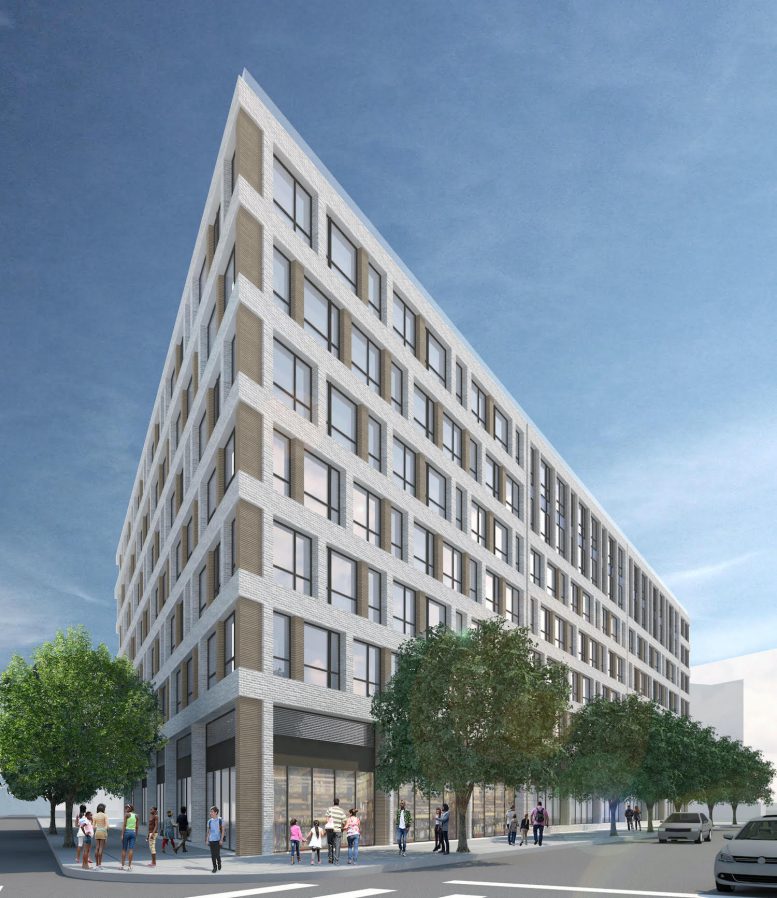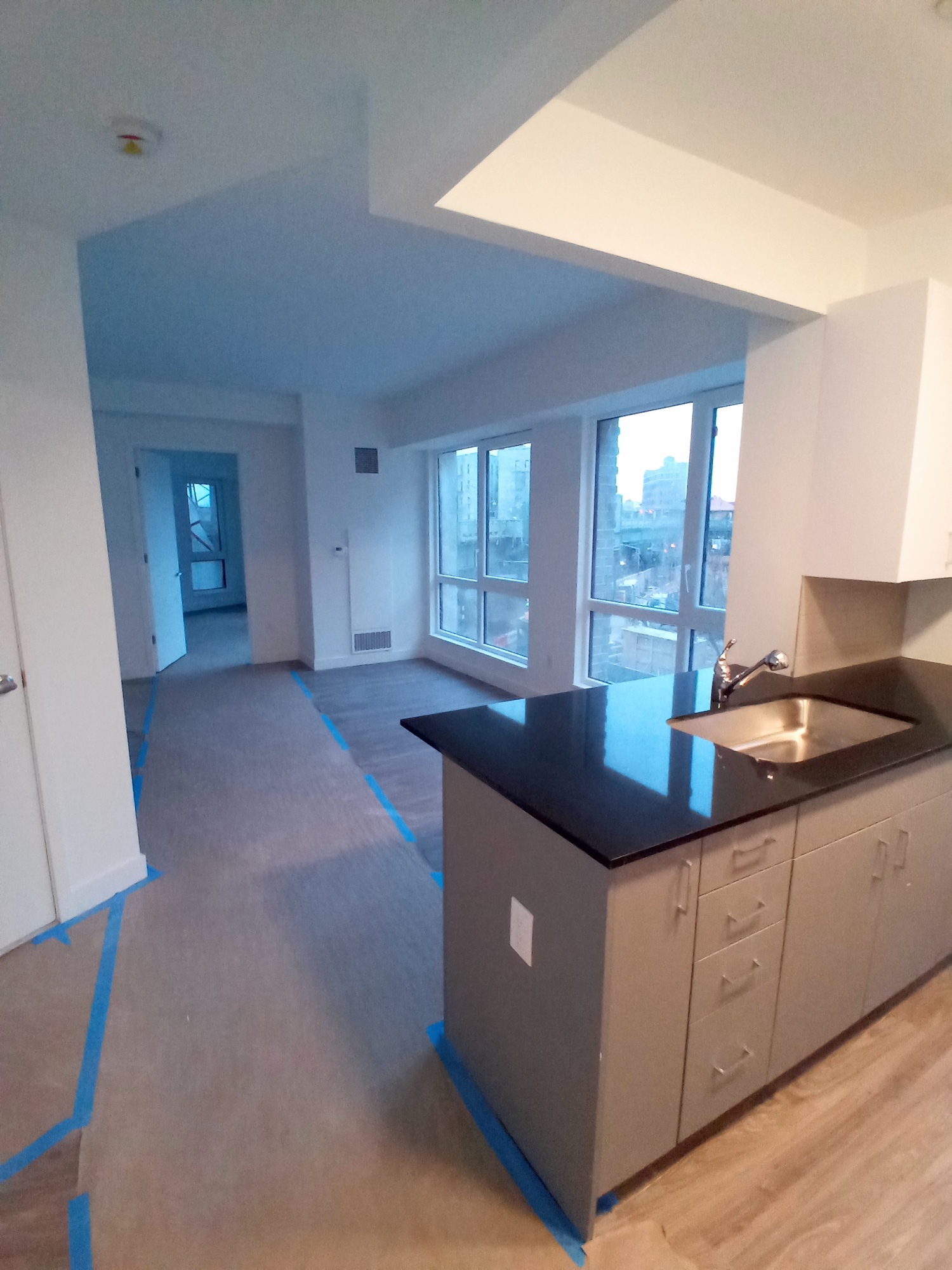Chris Wallace: Joining us now is the Mayor of New York City Bill de Blasio. Mayor, welcome back to Fox News Sunday.
Mayor Bill de Blasio: Thanks so much, Chris.
Wallace: I want to start with something you said this week, here you are –
Mayor: Even looking back on the difficult year 2020, and was one of the most difficult years ever for this city – still, New York City, the safest of the top 20 big cities in this country.
Wallace: But according to the New York Police Department, through last Sunday, six of the seven so-called index crimes are up this year, including murder, robbery and felony assault. The only one that's down is burglaries. Mayor, you know what Disraeli said about lies, damned lies and statistics. In fact, doesn't your city have a serious crime problem?
Mayor: Chris, we've got a lot to do. There's no question about it. But let me tell you, first of all, in eight years I've been mayor, index crime, major crimes in New York City down 11 percent over eight years. And we did it bringing police and community closer together. So, the key is to overcome this horrible patch we've had in the COVID era all over this country, and re-bond police and community, get those guns off the street. And the NYPD has been doing a fantastic job, the most gun arrests we've seen in over two decades. So yeah, there's been problems for sure, and more to do, particularly in certain parts of the city. But I will guarantee you this – and our Police Commissioner Dermot Shea said this this week, very clearly – we are going to go back to where we were pre-pandemic and then get safer still. And we have been the safest big city of America and we will remain.
Wallace: But, again, we get to statistics. Murderers are up 45 percent over the last two years. Robberies are up 4.5 percent just in the last year. And I want to take a look, I want you to respond to your Police Commissioner Dermot Shea, and what he said just this week about people who are arrested being allowed without even having to post bail. Here he is.
Police Commissioner Dermot Shea: When you have mass amounts of people put back on the streets that have traditionally been held in jail, you're seeing some of that permeate here as well.
Wallace: When you say that New York is the safest big city in America, and I'm sure you can find statistics to back it up, don't you risk looking out of touch? I think there are an awful lot of New Yorkers who don't feel that.
Mayor: Chris, look, we've got to make sure that not only are we safe, but people feel safe. There's no question both are important. But look, look around this city right now, this city is thriving. We've come back strong from COVID. And the bottom line is that there is – today, in New York City, a much safer city than we were eight years ago. There's no question about that. The two years of COVID have created immense problems. And I agree with Commissioner Shea, there's some changes that we need in the laws in Albany. We need our court system back and running, which it hasn't been over these last two years. But the NYPD is doing their job and they're doing it with the community. And this is crucial, Chris, that bond between police and community got really a hurt deeply last year. But that's being fixed and healed now and it's making a difference. We're getting guns off the street. We are going to turn this situation around. I have confidence and the NYPD has confidence that we're going to get back to the pre-pandemic levels soon, and then surpass, and become even safer. And the statistics show it in most of the city, there are a few places where we're struggling. There's no question we have more work to do, for example, in the Bronx. But in most of New York City, the statistics show we're getting back to the pre-pandemic levels and then going better and farther.
Wallace: But Eric Adams who takes over as Mayor on January 1st, ran on a tough-on-crime platform. And one of his main tenants was, he said that he's going to restore an anti-crime unit that you disbanded. Here is Mr. Adams.
Mayor-elect Eric Adams: This is going to be a city where we are going to be safe. We're going to have effective policing that's not heavy handed. We're going to have the backs of our police officers, but we're going to hold them accountable to do their jobs.
Wallace: When voters elected Eric Adams – I mean, of all the candidates running for mayor, weren't they, in a sense, rejecting you?
Mayor: Eric Adams is someone I've worked really closely with, Chris. And it's pretty well known in New York City, I supported him and helped him in every way I could to get him elected. And I think he's going to continue what we started and build upon it. He was a police reformer as a police officer. This is well known. And he believes that we need to improve the relationship between police and community as key to safety. That's what we did with the strategy of neighborhood policing. So, no, I think there's a tremendous amount of continuity. You know, Commissioner Dermot Shea believed we needed to change that plainclothes unit. And I agree with him, those officers are now in uniform and they're taking more guns the street this year than we've seen in decades. So, I want to say, Commissioner Shea had a view strategically – would it work – and he proved it, and I backed him on it, and I believe that was the right way to go. But I'll tell you, I think Eric Adams is going to take everything that has been done and take it to the next level of safety for the city. I have a lot of faith in him.
Wallace: Let's turn to COVID. You just imposed a new mandate that all private businesses must have all of their employees vaccinated by December 27th. No exception for – well, if you're not vaccinated, you can get tested regularly instead. Why impose what may well be the most dramatic and sweeping COVID vaccine mandate in the country just four days before you're going to leave office?
Mayor: Because my job is to protect New Yorkers. And, look, the bottom line is we've gone through the worst crisis in our history. We've lost tens of thousands of people in this city. It's been incredibly painful. I've talked to a lot of New Yorkers who lost a grandparent, a parent, someone they loved, and I have to keep them safe and every time –
Wallace: But why not – excuse me, sir, why not allow the new mayor who's going to come in four days later to impose that mandate if he's going to do it. You're sticking him with it.
Mayor: No, every time we have put a mandate in place, Chris, it has worked. We're at 71 percent right now of all New Yorkers – all New Yorkers, 71 percent fully vaccinated. We're leading the country. And that's because we used incentives and mandates. And every single mandate we put in place has greatly increased the number of people vaccinate. Since the first mandates back in all August, we've had over million more doses. And that's why the city is open and thriving. Chris, really, vaccination equals freedom, because it allows people to get back to work, get back to their lives, be safe wherever they are – school, a workplace. It works and that's why we're continuing to deepen it.
Wallace: This week, New York City became the biggest city in the country to allow non-citizens – people that are in this country legally for as little as 30 days – to vote in municipal elections. Non-citizens to vote, for instance, for Mayor of New York City, going forward – you expressed some concerns about the legality of this law, but you said you're not going to veto it. Why not?
Mayor: I have mixed feelings. I've been very open about it on this law. And I think there are big legal questions. But I also respect the City Council. They made a decision. Look, the bottom line here is, we've got a lot of – this is an important issue, of course. But what we just talked about is a central issue, defeating the Omicron variant, defeating COVID, so we can go back to life in the city. That's where my focus is.
Wallace: Well, let's talk about your focus, going forward. There is some talk – and you are apparently openly considering running for Governor next year. I want to take a look at this recent poll. Let's put up the numbers. Governor Kathy Hochul, who replaced Andrew Cuomo, now has 36 percent support. You're way back in the field at six percent. And when voters statewide were asked about you, 28 percent had a favorable opinion, 55 percent unfavorable. Mayor, do you really have a shot?
Mayor: Chris, that poll you showed, that horse race, that reminds me of pretty much every election I've ever been in. I've been an underdog many, many times. It's not where you start, it's where you finish. And elections are a chance to tell people your vision and what you've done. My vision is that we've got to change a lot of things in this state, including helping families. Working families are so struggling in the State of New York, they need a lot more help. Parents need a much better situation for their kids than they have right now. The school day does not account for parents. Schedules at work, summer is tough for parents. I've proposed a plan to change that by asking those who've done very well to pay a little bit more so families can have a decent life in New York State. So, I think people respond to ideas, and vision, and accomplishment, and I'll be going all over the State of New York talking to people about just that.
Wallace: So, in 10 seconds, you sound like you're running.
Mayor: Well, I have more to say on that soon. Right now, for the next few weeks, finishing my term as Mayor. My goal and my focus, keeping this city safe from the Omicron variant, turning us – you know, getting away from the COVID era. And again, this is why a tough, strong approach with mandates is what has kept us safe. This is one of the safest places in America when it comes to COVID and we intend to keep it that way.
Wallace: Mayor de Blasio, thank you. Thanks for your time this Sunday. Good to talk with you, sir.
Mayor: Same here, Chris. Thank you.








